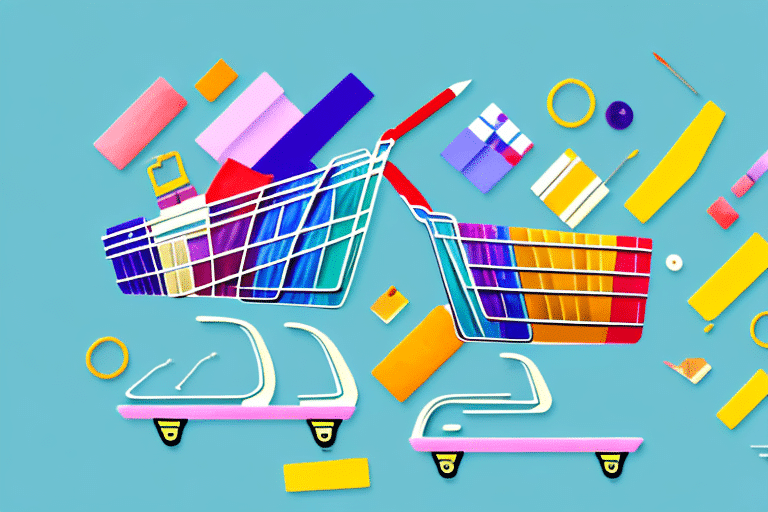Understanding Generation Z in E-commerce
Generation Z, also known as the "digital natives," comprises individuals born between the mid-1990s and early 2010s. This cohort's unique characteristics and behaviors make them a significant target for e-commerce businesses. In this article, we explore effective strategies to generate loyalty among Generation Z e-commerce shoppers.
Key Characteristics of Gen Z Consumers
Digital Savviness
Generation Z is the most digitally connected generation to date, with 98% owning a smartphone and spending an average of 3-4 hours daily on mobile devices (Pew Research Center, 2023). Their proficiency with technology influences their shopping behaviors, necessitating user-friendly, mobile-optimized websites.
Short Attention Spans
Gen Z consumers have shorter attention spans, often switching between multiple tasks quickly. This demands that e-commerce platforms provide fast-loading websites, concise information, and engaging multimedia content to capture and retain their interest.
Desire for Authenticity and Transparency
Authenticity and transparency are paramount for Gen Z. They prefer brands that are honest about their practices, including environmental sustainability and social responsibility. Studies show that 75% of Gen Z consumers are more likely to purchase from brands that are committed to making a positive impact on society (Nielsen, 2015).
Diversity and Inclusion
Gen Z values diversity and inclusion, expecting brands to reflect these principles in their marketing and hiring practices. Inclusive branding not only attracts Gen Z but also fosters a sense of belonging and loyalty.
Effective Loyalty Programs for Gen Z
Personalized Rewards and Exclusive Access
Loyalty programs tailored to Gen Z's preferences are essential. Personalized rewards, such as customized discounts and exclusive access to new products, can significantly enhance loyalty. For instance, offering early access to limited-edition items can create a sense of exclusivity and urgency.
Gamification Elements
Incorporating gamification into loyalty programs can engage Gen Z shoppers. Elements like earning badges, completing challenges, and unlocking levels make the shopping experience more interactive and enjoyable.
Data-Driven Insights
Loyalty programs provide valuable data on customer behaviors and preferences. Analyzing this data allows businesses to refine their marketing strategies, optimize product offerings, and enhance customer experiences tailored to Gen Z's tastes.
Personalization Strategies to Enhance Loyalty
Customized Product Recommendations
Personalized product recommendations based on browsing history and purchase patterns can significantly improve user experience. Algorithms that suggest relevant products increase the likelihood of repeat purchases.
Personalized Marketing Messaging
Tailoring marketing messages to individual preferences creates a more engaging and relevant communication strategy. Utilizing data such as past purchases and browsing behavior can help craft messages that resonate with each customer.
Augmented Reality (AR) Experiences
Integrating AR technology allows Gen Z shoppers to virtually try on products, enhancing their shopping experience and reducing purchase hesitation. AR can bridge the gap between online and offline shopping, providing a more immersive experience.
Enhancing Convenience in the Shopping Experience
Streamlined Checkout Processes
Gen Z values efficiency, making streamlined checkout processes crucial. Simplifying the number of steps and offering guest checkout options can reduce cart abandonment rates.
Multiple Payment Options
Offering diverse payment methods, including digital wallets and buy-now-pay-later services, caters to Gen Z's preference for flexible and convenient payment solutions.
Fast and Flexible Delivery Options
Providing multiple delivery options, such as same-day or next-day delivery, meets Gen Z's demand for speed and convenience. Real-time order tracking further enhances trust and satisfaction.
Leveraging Social Media for Customer Loyalty
Engaging Content and Interactive Campaigns
Social media platforms are integral to Gen Z's daily lives. Creating engaging content, such as interactive polls, live streams, and user-generated content campaigns, fosters a community around the brand.
Responsive Customer Service
Providing prompt and helpful customer service on social media channels demonstrates a brand's commitment to customer satisfaction. Quick responses to inquiries and issues can significantly enhance trust and loyalty.
Influencer Partnerships
Collaborating with influencers who resonate with Gen Z can amplify brand messages and reach a broader audience. Authentic endorsements from trusted figures can boost credibility and attract loyal customers.
Optimizing Mobile Experiences for Gen Z
Mobile-First Design
With the majority of Gen Z consumers shopping on smartphones, a mobile-first design approach ensures a seamless and intuitive shopping experience. Features like responsive design, easy navigation, and fast load times are essential.
Mobile-Exclusive Promotions
Offering promotions and discounts exclusive to mobile users can incentivize purchases and foster loyalty. Mobile-exclusive content also encourages frequent engagement with the brand's app or mobile site.
Push Notifications and App Engagement
Utilizing push notifications to inform users about sales, new arrivals, and personalized offers keeps the brand top-of-mind and encourages repeat visits and purchases.
Encouraging Reviews and Referrals
Incentivized Review Programs
Encouraging customers to leave reviews by offering incentives such as discounts or loyalty points can increase the volume of positive feedback. High-quality reviews enhance trust and influence potential buyers.
Referral Campaigns
Implementing referral programs where customers can earn rewards for referring friends and family can expand the customer base. Personal recommendations are highly valued among Gen Z, driving organic growth.
User-Generated Content (UGC)
Promoting UGC, such as customer photos and testimonials, showcases authentic experiences with the brand. Featuring UGC on websites and social media channels builds community and trust.
Delivering Exceptional Customer Service
24/7 Support Availability
Offering round-the-clock customer support through various channels, including live chat and social media, caters to Gen Z's expectation for immediate assistance.
Personalized Support Interactions
Providing personalized customer service by acknowledging individual preferences and past interactions enhances the overall shopping experience and fosters loyalty.
Proactive Problem Resolution
Taking proactive steps to identify and resolve potential issues before they escalate demonstrates a brand's dedication to customer satisfaction, strengthening loyalty.
Measuring the Success of Loyalty Strategies
Key Performance Indicators (KPIs)
Tracking KPIs such as customer retention rates, average order value, and lifetime value helps assess the effectiveness of loyalty programs. Regularly monitoring these metrics allows for data-driven adjustments.
Customer Feedback and Surveys
Collecting feedback through surveys and direct interactions provides insights into customer satisfaction and areas for improvement. Understanding Gen Z's evolving preferences ensures loyalty strategies remain relevant.
Data Analytics and Reporting
Utilizing advanced data analytics tools to interpret customer data and behavior patterns facilitates continuous optimization of loyalty initiatives. Detailed reporting aids in making informed strategic decisions.
Conclusion
Building loyalty among Generation Z e-commerce shoppers requires a multifaceted approach that emphasizes personalization, convenience, and engagement. Implementing tailored loyalty programs, leveraging social media, optimizing mobile experiences, and delivering exceptional customer service are crucial strategies for fostering long-term loyalty. By continuously measuring and refining these strategies based on data and feedback, businesses can effectively retain Gen Z customers in a competitive digital marketplace.
For further insights on e-commerce trends and strategies, refer to reputable sources such as the Nielsen 2023 Report on Gen Z Consumer Behavior and the Forbes Guide to Gen Z E-commerce.






















